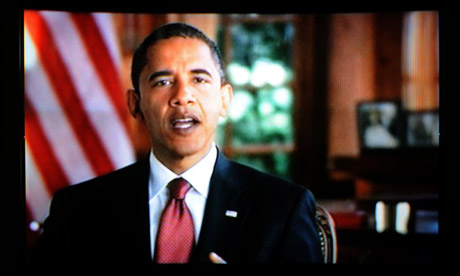
Dear Senator:
The National Right to Life Committee (NRLC), representing affiliated right-to-life organizations in all 50 states, is strongly opposed to the so-called "DISCLOSE Act" (S. 3369), as introduced by Senator Whitehouse on July 10.
Like previous versions of the DISCLOSE Act, the main purpose of S. 3369 is to evade the holdings of the U.S. Supreme Court in Citizens United v. FEC (2010), and to discourage and reduce speech that criticizes or annoys those who hold federal office. NRLC is opposed to invoking cloture on the motion to proceed to this legislation, and intends to include any such roll call in its scorecard of key votes for the 112th Congress, as we did for the 111th Congress. Such a roll call is currently scheduled for Monday, July 16.
This legislation has been carefully crafted to maximize short-term political benefits for the dominant faction of one political party, while running roughshod over the First Amendment protections for political speech that have been clearly and forcefully articulated by the U.S. Supreme Court in a series of landmark First Amendment rulings, culminating in FEC v. Wisconsin Right to Life, 551 U.S. 449 (2007) and Citizens United.
Enactment of the DISCLOSE Act would not be a curb on corruption, but itself a type of corruption – an abuse of the lawmaking power, by which incumbent lawmakers employ the threat of criminal sanctions, among other deterrents, to reduce the amount of private speech regarding the actions of the lawmakers themselves.
The true purposes of the DISCLOSE Act
NRLC is the furthest thing from a "shadow" group. Our organization's name and contact information always appear on our public communications, and we openly proclaim the public policies that we advocate. But there is very little in this bill, despite the pretenses, that is actually intended to provide useful or necessary information to the public. The overriding purpose is precisely the opposite: To discourage, as much as possible, disfavored groups (such as NRLC) from communicating about officeholders, by exposing citizens who support such efforts to harassment and intimidation, and by smothering organizations in layer on layer of record keeping and reporting requirements, all backed by the threat of civil and criminal sanctions. Indeed, the bill would benefit from a truth-in-labeling amendment to clarify that "DISCLOSE" actually stands for "Deterring Independent Speech about Congress except by Labor Organizations and Selected Elites."
All of the cant by backers of this legislation about "buying elections" and "protecting democracy" is intended to obscure the reality that neither National Right to Life nor any other incorporated group has any power whatever to "influence elections," no matter how much money is available, except by informing and persuading individual citizens – all of them adults with a presumed capacity to make up their own minds about which messages they will accept and act on. It is precisely that process of informing and persuading that the crafters of this legislation fear and seek to suppress – all the while seeking to hide their self-serving purposes behind layers of sanctimonious, pseudo-populist rhetoric.
As eight former members of the Federal Election Commission pointed out in a 2010 letter to the Committee on House Administration, "the FEC now has differing regulations for 33 types of contributions and speech and 71 different types of speakers." The federal laws and regulations governing "political" speech at that time already consumed more than 800 pages, and the FEC had published more than 1,200 pages in the Federal Register explaining its decisions. But that is not enough for the sponsors of the DISCLOSE Act, because the bill would add 20 pages of additional barbed-wire statutory barriers to speech about policymakers and pending legislation, which if enacted would in turn generate hundreds of new pages of regulations.
Speech-restrictive provisions of S. 3369
The bill would codify, in Section 2, a vague and expansive definition of "the functional equivalent of express advocacy," that applies to communications that "when taken as a whole, it can be interpreted by a reasonable person only as advocating the election or defeat of a candidate, taking into account whether the communication involved mentions a candidacy, a political party, or a challenger to a candidate, or takes a position on a candidate's character, qualifications, or fitness for office." There is little that an organization could say by way of commentary on the votes or positions taken by an incumbent member of Congress that would not fall within this expansive definition, in the eyes of some "reasonable person" – most often, an annoyed incumbent lawmaker or his operatives.
The time periods over which the government would have authority to regulate speech about those who hold or seek federal office – so-called "electioneering communications" – would be dramatically expanded under S. 3369. As the American Civil Liberties Union explained in its excellent six-page March 28, 2012 letter opposing S. 2219, the very similar precursor to S. 3369:
The DISCLOSE Act expands the period of time during which issue advocates – those taking no position in support of or in opposition to a political candidate – must disclose their donors if they wish to publish issue ads. The Act would expand the "electioneering communications" period – currently the 30 days before a primary and the 60 days before a general election – quite significantly. For communications that refer to a candidate for the House or Senate, the period would begin on January 1 of the election year and end on the election, and would encompass the entire period following the announcement of a special election up to the special election. In concrete terms, were this bill law now, the period for communications referring to a member of this [Senate Rules & Administration] Committee would extend for a full 10 months before the 2012 election in early November, whereas currently the relevant period is limited to two months.
As a result, the special reporting rules would apply to communications about all House members and one-third of senators for effectively the entire second session of each Congress. During this period of time – nearly half of every Congress for members of the House – if any advocacy organization wished to run an ad that even mentioned a candidate's name, that organization would face the obligation of publicly disclosing personally identifying information about many of its donors. Such organizations would face two unsatisfactory choices: protect the privacy of their donors by refraining from issue advocacy or give up the privacy of their donors and place at risk the opportunity for additional donations by those supporters. Either way, this bill would have a deeply chilling effect on political speech about pending legislation for more than 40% of each Congress.
For communications mentioning a presidential or vice presidential candidate . . . pure non-partisan issue advertising that happens to mention a presidential or vice-presidential candidate – including ads commenting, for instance, on a candidate's record on contraception, gun control, or trade with China, and even if they assiduously avoid support or opposition for the candidate – would be subject to the heightened disclosure rules in most states for significantly more than a year before a general presidential election. For similar ads mentioning other candidates, the special rules period will begin on January 1 of the election year.
The concerns are further heightened when, as in the current presidential election year, one of the candidates is the incumbent president running for reelection. The result of the extended period is a chilling effect on public criticism of the president or vice president, including truly nonpartisan criticism on specific policy issues, during more than a fourth of a president's first term.
Our members and supporters have a right to support our public advocacy about important and controversial issues without having their identifying information posted on the Internet, exposing them to harassment or retribution by those who may disagree with their beliefs. As the eight former FEC commissioners noted in their 2010 letter, "In this, DISCLOSE infringes on the First Amendment rights of private association recognized by the Supreme Court in NAACP v. Alabama, 357 U.S. 449 (1958) . . . Such information gives political parties and officeholders powerful information to bully advocacy groups and intimidate individuals . . ."
It should be self-evident that the real purpose of the burdensome requirements imposed by S. 3369 is not to inform the public, but to deter potential donors from financially supporting the work of groups such as NRLC in the first place. As Senator Schumer, the prime sponsor of a previous version of the DISCLOSE Act, acknowledged in a moment of candor, the "deterrent effect should not be underestimated."
We strongly urge you to oppose this pernicious, unprincipled, and constitutionally defective legislation. In our scorecard and advocacy materials, the legislation will be accurately characterized as a blatant political attack on the First Amendment rights of NRLC, our state affiliates, and our members and donors.
Sincerely,
David N. O'Steen, Ph.D. Douglas Johnson
Executive Director Legislative Director















